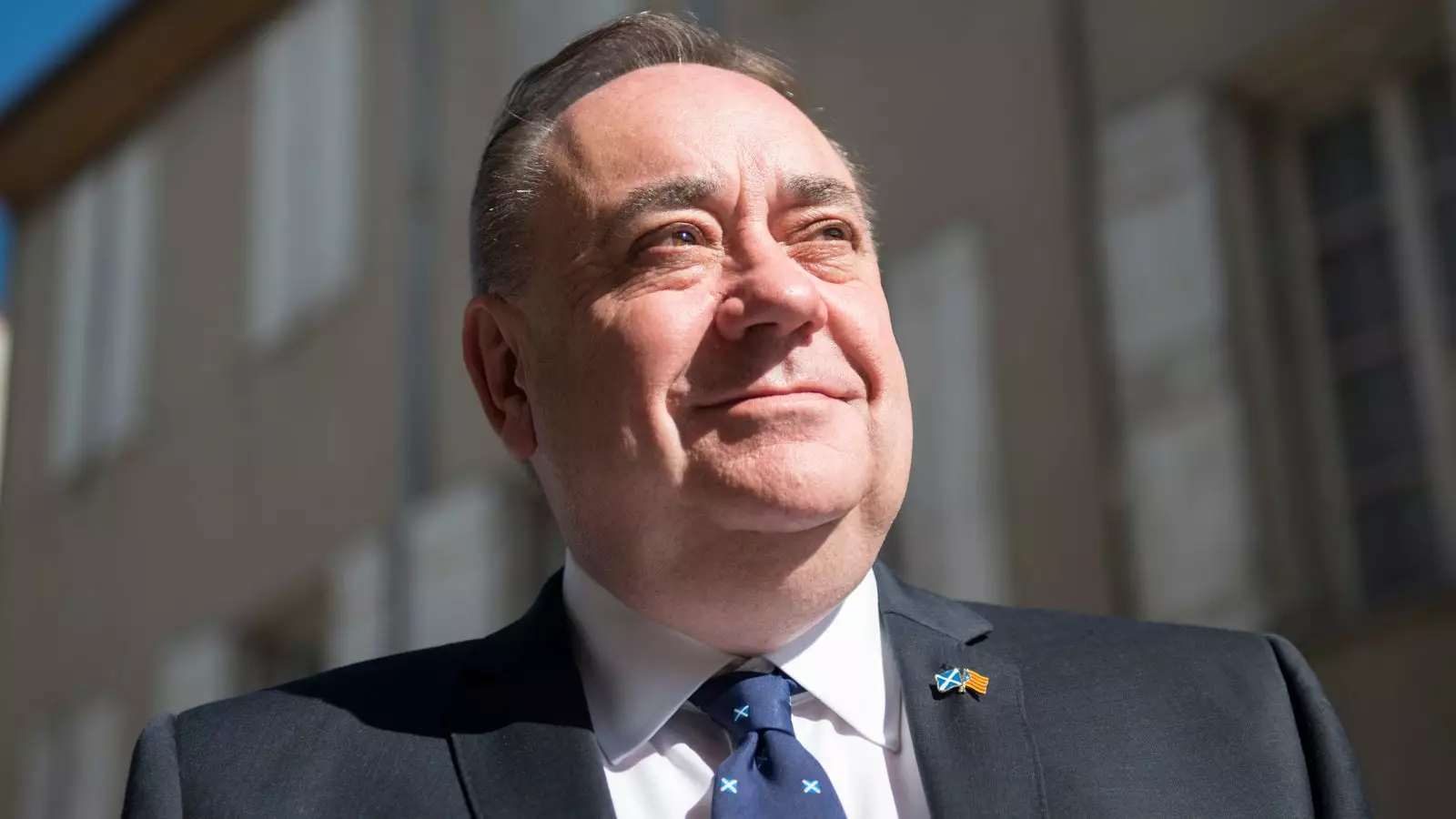The political landscape in Scotland has been profoundly affected by the recent passing of Alex Salmond, the former First Minister, following a heart attack at the age of 69. His death occurred in North Macedonia while he was attending a conference, a location far from the political battlegrounds where he had made his mark over several decades. The manner of his passing, collapsing mid-speech before a crowd, underlines the unexpected nature of life, especially for a figure who was so deeply entrenched in the franchise of Scottish and UK politics. His sudden departure has left a void, eliciting an outpouring of tributes from notable figures across the spectrum, including the Prime Minister and even the monarch, confirming his significant impact on public life.
As he is laid to rest, Salmond’s funeral is characterized by its privacy, reflecting the wishes of his family. The decision for a closed service underscores a desire for an intimate farewell, away from the public eye—which is a stark contrast to the scrutinizing gaze that often accompanied his political career. His repatriation back to the UK, facilitated by a private flight chartered by philanthropist Sir Tom Hunter, emphasizes the personal connections he formed, reinforcing the notion that while he was a public figure, at heart, he was a person beloved by his close circle.
In a poignant moment, Salmond’s family welcomed him back to Aberdeen Airport with a piper playing “Freedom Come All Ye,” a reflection of his deep-seated connection to Scotland’s independence movement. This moment encapsulated not just mourning, but a celebration of his life and achievements. The presence of supporters, such as the YesBikers for Scottish Independence, at the cortege further highlights his enduring legacy within the independence movement. While some politically significant figures chose to abstain from attending the airport gathering, First Minister John Swinney articulated a respect for the family’s wishes, emphasizing the significance of personal preference over formal political duties during times of grief.
A Life Celebrated at Strichen
The funeral service, conducted by Reverend Ian McEwan at Strichen Parish Church, symbolizes the intimate and personal nature of Salmond’s farewell. Speeches from close relatives and fellow politicians, including acting Alba Party leader Kenny MacAskill, underline not only his political affiliations but also the personal connections that define one’s life. Mr. Salmond was renowned for his rhetorical prowess and intellectual engagement, traits that made public speeches memorable and impactful.
As friends and family gather to reflect on Salmond’s life, it is evident that he will be remembered not just for his political accomplishments, such as serving as First Minister from 2007 to 2014, but also for the controversial decisions that shaped Scotland’s path towards independence. His leadership spanned significant events, notably the 2014 Scottish independence referendum, an endeavor that defined his later years in politics.
Salmond’s departure leaves an open dialogue on the issues he championed—most notably, the quest for Scottish independence. The discussion surrounding a public memorial event highlights the need for a communal reflection on his impact on Scottish identity and politics. Salmond’s family recently expressed admiration for his contributions, noting him as a “formidable politician” and “outstanding intellect,” a testament to the polarizing yet unwavering figure that he was.
As Scotland commemorates Alex Salmond, it must also contemplate the implications of his vision for a nation seeking autonomy. Salmond’s career, marked by triumphs and tribulations, invites reflective questions on the evolving pursuits of Scottish independence and the future of its political framework. The book of condolence at the Scottish Parliament is a tangible sign of recognition that the dialogue he invigorated is far from over. His narrative will likely continue to resonate as Scotland navigates its path forward, enduring long past his final farewell.
Alex Salmond’s legacy is a complex tapestry of powerful oratory, political ambition, and a spirited embrace of Scotland’s potential. Though his time came to a sudden end, the conversations stirred by his life’s work promise to remain relevant, ensuring his presence resonates within Scotland’s ongoing journey.


Leave a Reply